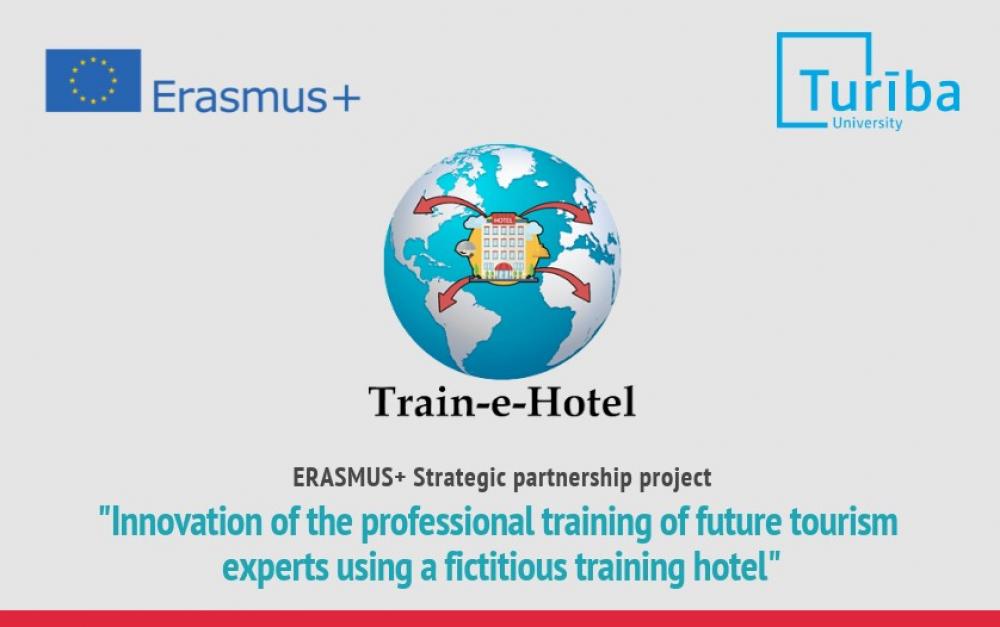International projects
Turiba University is actively expanding its international cooperation, initiating, developing, and implementing various local, national, and international projects.
We believe that the development of the University is inconceivable without innovative initiatives, the creation of new teaching approaches and methods, and without international collaboration. To prepare high-quality new professionals, it is essential for our university to provide opportunities for learning in an international environment, meeting lecturers, and professionals from around the world. Therefore, we realize international projects in collaboration with universities and partners worldwide.
Through these projects, we have developed new and innovative educational resources and tools, published books, organized international conferences, exchange trips, study visits, summer schools, and other activities.
We have extensive experience in international project management and have been actively involved in coordinating projects such as Central Baltic Interreg, Erasmus Mundus, Erasmus for Young Entrepreneurs program, European Social fund, JUSTICE, NORDPLUS, and ERASMUS+ projects.
Project department initiate and implement projects in collaboration with our faculties and their experts. We are excited to collaborate and bring your ideas to life! Get in touch with us:
KRISTĪNE NEIMANE, Head of project department: kristine.neimane@turiba.lv, Phone: +371 67615541, mob.+371 29628681
IEVA BRUKSLE, Project coordinator: ieva.bruskle@turiba.lv, Phone: +371 67616022
ERASMUS+ Strategic partnership “Innovation of the professional training of future tourism experts using a fictitious training hotel”

In November 2021 Turiba University together with partner universities from Slovakia, Hungary, Czech Republic and Italy started ERASMUS+ Strategic partnership project TRAIN-e-HOTEL. By implementing the TRAIN-e-HOTEL project we want to achieve a significant improvement of tourism students’ professional and transversal competencies. We expect a closer and better connection of professional practice with the educational process and goals, taking into account the new challenges and trends of the tourism industry.
MAIN AIM OF THE PROJECT:
The main reason for creating the project TRAIN-e-HOTEL is the need to increase and expand the career readiness of tourism students in accordance with the requirements of real professional practice. The main idea arose at the time of the global pandemic of the Covid-19 disease when students of relevant fields of study could not be provided with professional practice in accommodation facilities.
MAIN TASKS:
- Providing an alternative form of professional practice in the hotel industry;
- Supplementing professional practice in the hotel industry;
- Developing transversal competencies;
- Carrying out international cooperation;
- Bringing real practice closer to the offer of education;
- Creating culturally and socially diverse groups of students working to achieve common goals;
- Mobilizing and motivating students to participate in educational and development activities.
In frame of the project students will participate in training where they with support of mentors will create business plans and develop webpage for the training hotel, project partners will create cultural diversity map, environmental Strategy and intercultural digital campaign.
TARGET GROUP:
Bachelor and master level students of Tourism field in partner Universities; lecturers, tourism industry professionals.
PROJECT DURATION: 01.11.2021 – 01.22.2024.
PROJECT COORDINATOR: Constrantine the philosopher University in Nitra, Slovakia
PARTNERS:
- Silesian University in Opava, Czech Republic;
- Turiba University, Latvia;
- University of Pannonia, Hungary;
- University of Salento, Italy
CONTACTS:
Agita Doniņa
Academic leader of the project
agita.donina@turiba.lv
Margarita Platace
Project expert
margarita.platace@turiba.lv
Kristīne Tihanova
Project manager
Head of project department
kristine.tihanova@turiba.lv
+371 67625371
Project number: 2021-1-SK01-KA220-HED-000023291
The Project is co-funded by the ERASMUS+ Program of the European Union.
